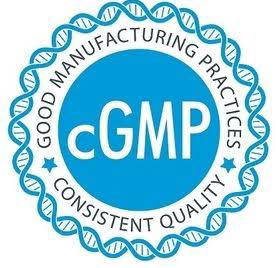Preamble:
Periodic media fill tests are a crucial component of the pharmaceutical manufacturing process to ensure the sterility of aseptic manufacturing operations.
These tests simulate routine production runs using growth media instead of actual product, helping to validate the aseptic techniques employed and identify potential contamination risks.
However, if a periodic media fill fails, it can have significant implications for the commercialized product and necessitates prompt and thorough actions to mitigate the impact. Here list out immediate actions are..
1. Investigate the Root Cause:
Upon identifying a failed periodic media fill, the first step is to conduct a detailed investigation to determine the root cause.
This investigation may involve examining the procedures, equipment, personnel, and environmental factors involved in the manufacturing process. Identifying the underlying cause is crucial to prevent future failures and to take appropriate corrective actions.
2. Assess Product Safety and Quality:
The next important step is to assess the impact on the safety and quality of the commercialized product.
This evaluation requires a comprehensive risk assessment, considering factors such as the severity of the failure, potential contamination sources, the nature of the product, and the intended use by patients. Depending on the outcome, various actions may be necessary to ensure product safety.
3. Evaluate Manufacturing Process:
The failed media fill should prompt a thorough evaluation of the entire manufacturing process. This evaluation aims to identify any deviations or weaknesses in the aseptic techniques employed, equipment functionality, personnel training, or environmental controls.
It may involve revisiting standard operating procedures, equipment validation, personnel qualification, and environmental monitoring practices.
4. Implement Corrective and Preventive Actions:
Based on the findings of the investigation and process evaluation, appropriate corrective and preventive actions should be implemented.
These actions may include revising procedures, enhancing training programs, upgrading equipment, improving facility design, optimizing environmental controls, or strengthening quality oversight.
It is crucial to document these actions and ensure their effectiveness through ongoing monitoring and evaluation.
5. Regulatory Considerations:
Depending on the severity and impact of the media fill failure, regulatory authorities may need to be informed.
In some cases, regulatory inspections and audits may be triggered, requiring transparent communication and cooperation.
Compliance with regulatory requirements and guidelines is essential to ensure the continued commercialization of the product.
6. Communicate with Stakeholders:
Open and transparent communication with stakeholders, such as regulatory authorities, customers, healthcare professionals, and patients, is crucial during such situations. Timely and accurate information helps maintain trust and allows for appropriate measures to be taken by all parties involved.
Inference:
A failed periodic media fill test can have significant implications for the commercialized product, necessitating swift and thorough actions to mitigate the impact.
By investigating the root cause, assessing product safety and quality, evaluating the manufacturing process, implementing corrective and preventive actions, considering regulatory requirements, and communicating effectively, pharmaceutical companies can address the failure and ensure the continued commercialization of their products with a focus on patient safety and product quality.
About the Author:
Dhansukh Viradiya is a highly accomplished expert in the pharmaceutical and biopharmaceutical industries. With over 10 years of experience in the field, he has gained comprehensive knowledge and expertise in various areas, including Process Validation, Cleaning Validation, Quality Management System, In-process quality assurance, Qualification etc.
Mr. Dhansukh holds a Master's degree in Pharmacy from a renowned University, where he specialized in Quality Assurance.
As a thought leader, Mr. Dhansukh has published numerous articles and white papers on various topics related to pharmaceutical and biopharmaceutical industries. His research work focuses on emerging trends, current regulatory expectations, advancements in technology, personalized medicine, and the intersection of healthcare and technology.
With his passion for improving patient care and dedication to advancing the field, Dhansukh Viradiya continues to make significant contributions to the pharmaceutical and biopharmaceutical industries. His insights and expertise make him a valuable resource in understanding the dynamic landscape of these sectors and their impact on global healthcare.
Disclaimer:
The author's biography is provided for informational purposes only and does not imply any endorsement or affiliation with the article or its content.
Bye a latest value added products on Amazon by clicking on below link 💌














No comments:
Post a Comment